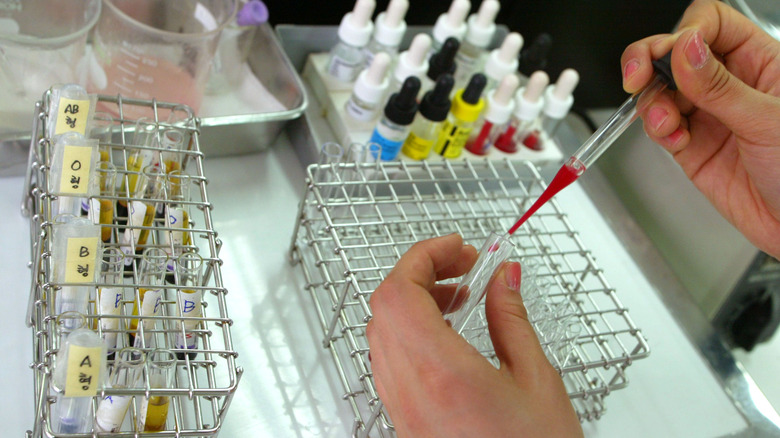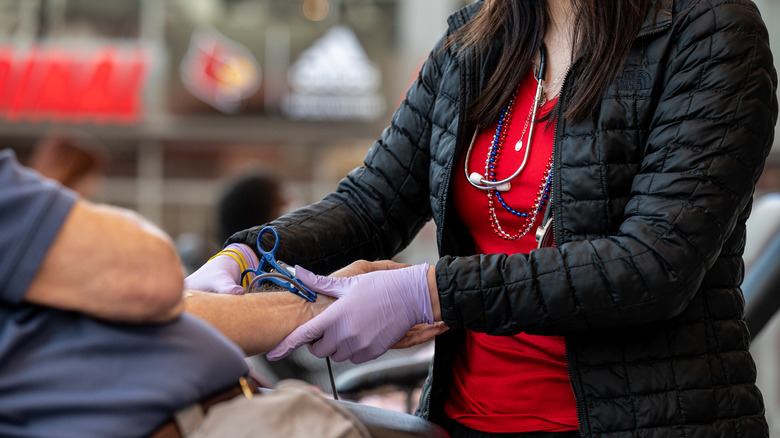This Is The Most Common Blood Type
If you think blood type isn't important, think again. Blood transfusions save 4.5 million lives every single year, and the process would not be nearly as safe if blood type was not taken into account. Receiving an incompatible blood type can lead to a potentially deadly immune reaction. Fortunately, medical professionals avoid this by accounting for blood type (per Healthline).
Most people have a blood type of either A, B, AB, or O, depending on the antigen(s) present on the red blood cells. The letter is followed by a + or – depending on whether or not a protein called the Rh factor is present (per American Red Cross).
So what is the most common blood type? According to the American Red Cross, the most common blood type in the United States (constituting 37% of the population) is O+. People with an O+ blood type have neither A nor B antigens on their red blood cells, but have the Rh factor.
Ethnicity plays a role in blood type
A general trend occurs across ethnicities in the United States: the most common blood type is O+, followed by A+ and then B+ (per American Red Cross). However, the exact percentages differ based on ethnicity. For example, more than half (53%) of Latino Americans have an O+ blood type. While O+ is the most common blood type among every other ethnicity as well, the percentage is smaller among African Americans (47%), Asians (39%), and especially Caucasians (37%).
A+ blood type is more prevalent among Caucasians (33%) than Latin Americans (29%), Asians (27%), and African Americans (24%). When it comes to the B+ blood type, Asians (25%) and African Americans (18%) far exceed Latin Americans and Caucasians (both 9%).
Relatively few Americans have type O- (7%) or AB+ (3%) blood, the universal donors for blood and plasma respectively, according to OneBlood. Being a universal donor means that your blood or plasma is unlikely to cause an immune reaction in a recipient of any blood type.
Regardless of blood type, donating blood or plasma is a valuable and life-saving act, but if your blood type is O- or AB+, keep in mind that your rare blood type is what will be needed in emergency situations when a recipient's blood type is unknown. O+ is also in high demand because it is the most common blood type in the United States, according to the American Red Cross.


